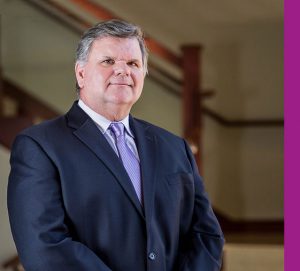 Q: I live on the second floor of a condominium building, where I own the unit. The unit above me is rented to a nice young couple, but they are “night owls” and have a lot of friends over to visit. Sometimes, things get quite noisy (loud music, doors slamming when friends leave, boisterous talk in the parking lot) late at night. This has woken me several times. I have asked the management company to do something, but they said no one else has complained and the board president said to leave it alone. What do you say? (C.S., via e-mail)
Q: I live on the second floor of a condominium building, where I own the unit. The unit above me is rented to a nice young couple, but they are “night owls” and have a lot of friends over to visit. Sometimes, things get quite noisy (loud music, doors slamming when friends leave, boisterous talk in the parking lot) late at night. This has woken me several times. I have asked the management company to do something, but they said no one else has complained and the board president said to leave it alone. What do you say? (C.S., via e-mail)
A: Condominium living has advantages and disadvantages. Living in close proximity to another family (you are literally separated by less than a foot of concrete) will inevitably result in noise transmission of some degree. The manner in which the building is constructed often plays a role in the level of noise transmission.
You have the right to complain legally if the conduct of your neighbor constitutes a “nuisance.” A nuisance is when one person engages in conduct (even though that conduct may be otherwise lawful) which unreasonably interferes with the lawful enjoyment of another party in the use of their property. The law does not afford protection to the overly sensitive.
If you have not done so already, my advice is that your first step is to speak to your neighbors. Perhaps they are not aware that they are bothering you.
It is often difficult to get an association to intervene in this kind of situation, especially where there is only one neighbor who complains. There is some debate whether a person in your situation could legally force the association to act, my opinion is that you probably could not.
Section 718.303(1)(e) of the Florida Condominium Act confers standing on you, as a unit owner, to bring legal action against a tenant leasing a unit or any other invitee occupying a unit. While that is obviously not the preferred place to start, it is an option available to you. Therefore, if directly approaching your neighbor does not solve the problem, you are going to have to decide whether to live with it, or obtain legal counsel to address the issue formally.
Q: The board of our homeowners’ association has 5 members. None of us have a financial background. We have a retired CPA who lives in our community who we would like to make our treasurer. Is this legally permitted? (S.L., via e-mail)
A: There is no legal requirement that officers of a corporation be members of its board, and outside of the community association context, that is almost always the case.
However, you need to review your association’s articles of incorporation and bylaws. Some articles of incorporation and bylaws require all officers to be board members, though that is not the case the majority of the time. If there is such a limit, you should also consider whether the person would be eligible for appointment as an assistant officer.
If a person who is not on the board is appointed to an office, make sure they are properly added to the association’s various insurance policies, including the fidelity bond and the directors and officers liability policy.
Q: I ran for the board of my condominium association last year and lost by two votes. One of the people who was elected sold their unit, and the board just appointed someone to fill the seat who did not even put their name in. Is this legal? (N.M., via e-mail)
A: Yes. Absent a very unusual provision in the articles of incorporation or bylaws (which I have seen only once or twice), previous candidates have no preference in the sitting board’s filling of vacancies. Basically, the board has the discretion to fill vacancies with any person who is legally qualified to sit on the board. For example, if the condominium documents require directors to be unit owners, the board would be required to fill the seat with a unit owner. There are certain other disqualifications including certain felony convictions and financial delinquencies.
Joe Adams is an attorney with Becker & Poliakoff, P.A., Fort Myers. Send questions to Joe Adams by e-mail to jadams@beckerlawyers.com. Past editions may be viewed at floridacondohoalawblog.com.